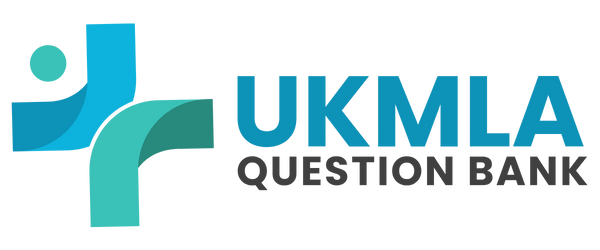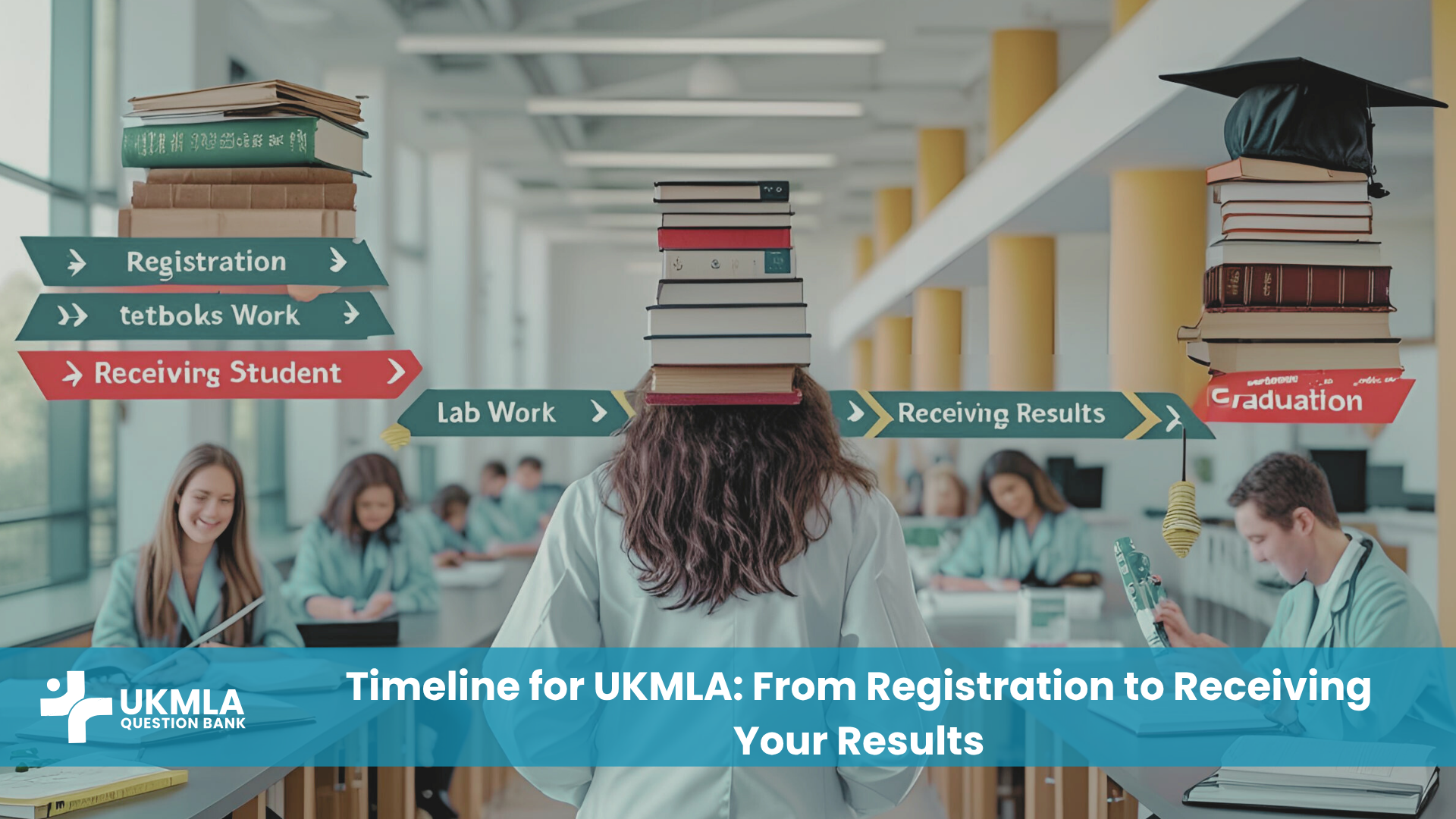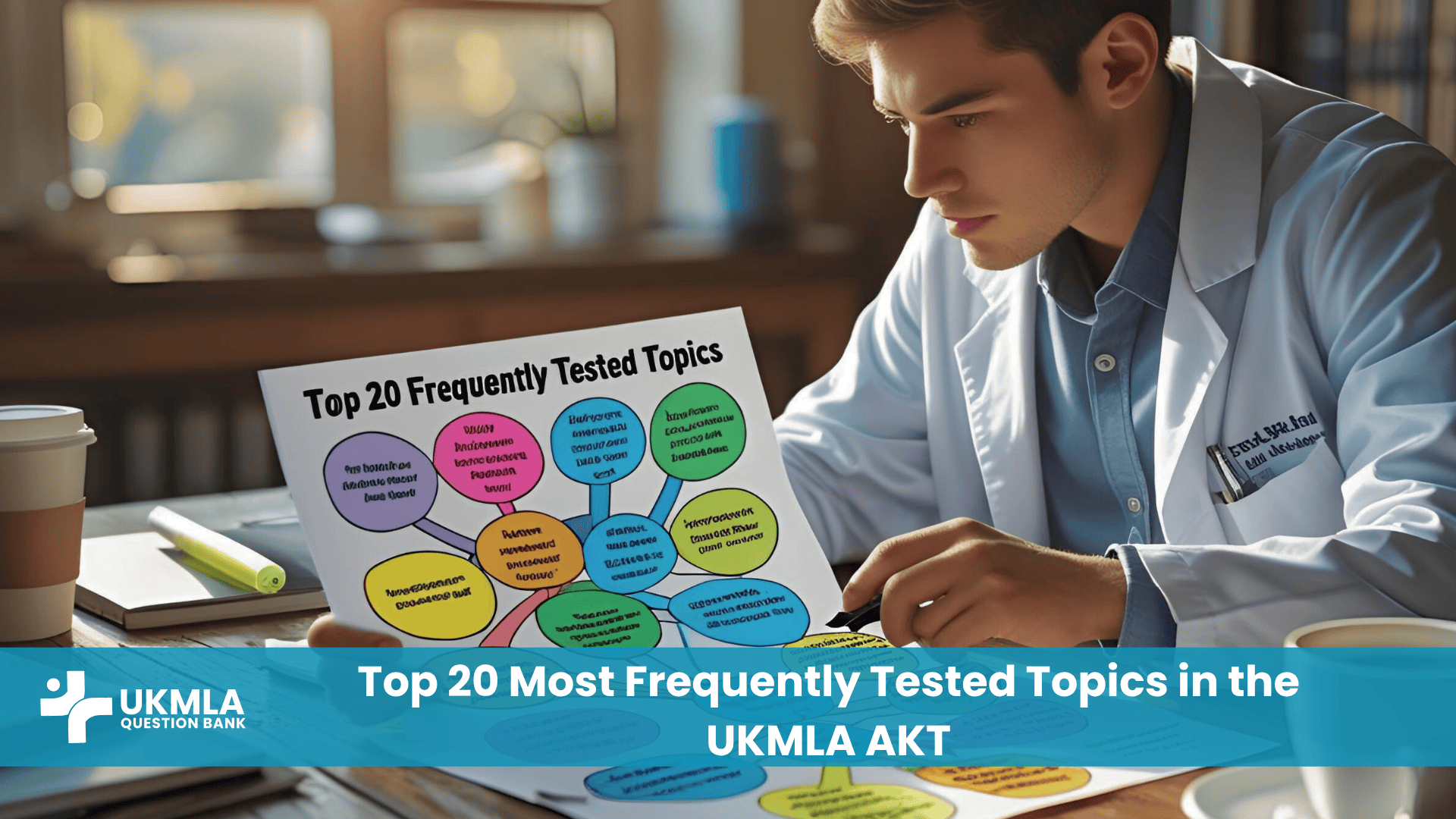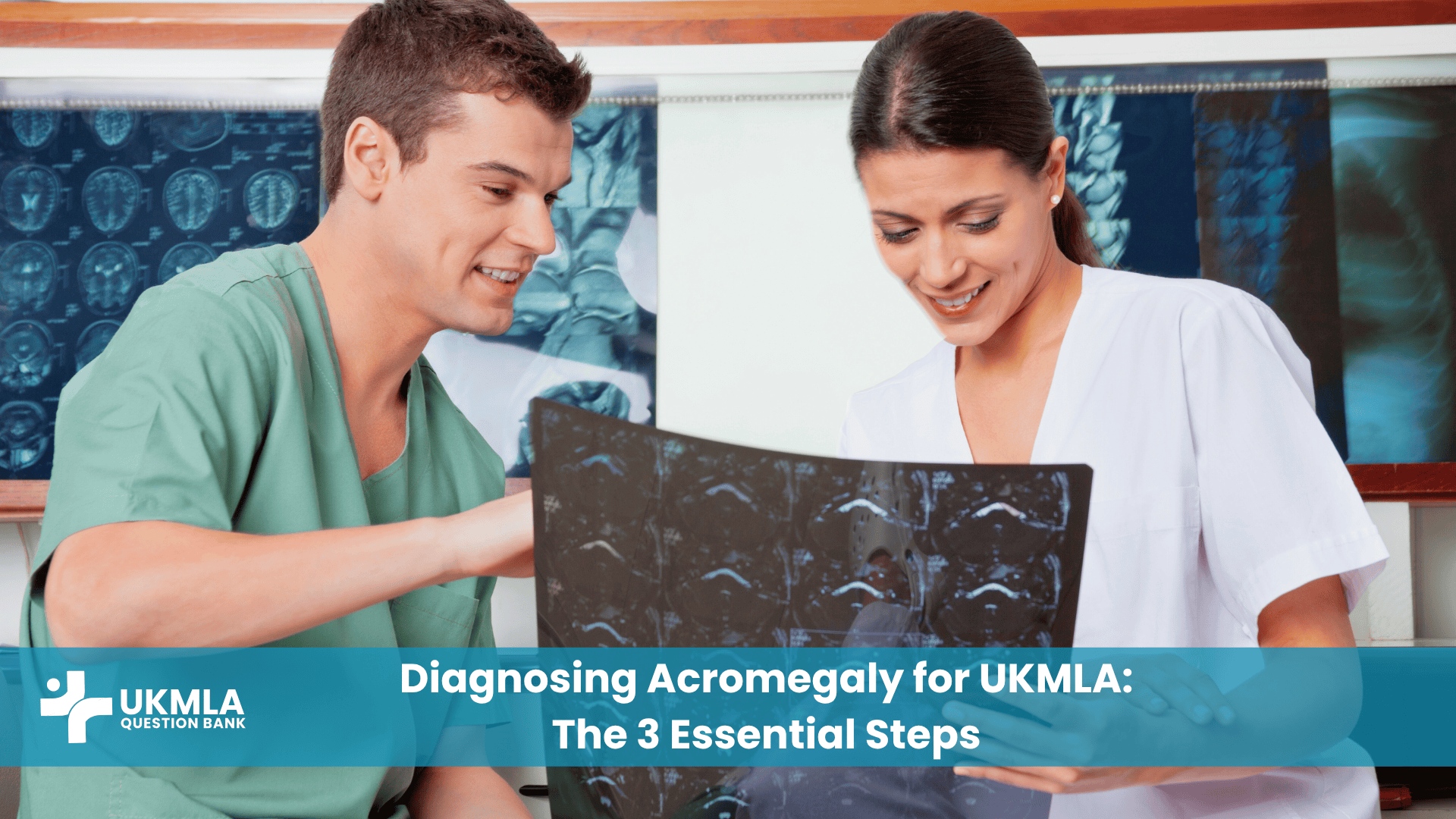The journey through the UK Medical Licensing Assessment (UKMLA) is a multi-stage process that requires careful planning and an understanding of the various time commitments involved. For both UK medical students and International Medical Graduates (IMGs), knowing the approximate UKMLA timeline, from the initial eligibility steps and exam registration to finally receiving your results, is crucial for managing expectations, organizing study schedules, and navigating personal commitments.
While exact durations can vary based on individual circumstances and official schedules, this comprehensive guide aims to provide a realistic overview of the UKMLA timeline. We will break down the key phases for IMGs and UK students, highlighting critical milestones and offering tips for effective time management throughout this significant undertaking.
Understanding the Two Main UKMLA Pathways and Their Timelines
The UKMLA journey and its associated timeline differ considerably depending on whether you are a UK medical student or an IMG:
UK Medical Students: The UKMLA is integrated into your medical degree. The timeline is largely dictated by your university’s academic calendar and examination schedules. Preparation is woven into your curriculum over several years. Our guide, “[UKMLA for UK Medical Students: What Your University Expects],” delves into this integrated approach.
International Medical Graduates (IMGs): For IMGs, the UKMLA is a distinct, sequential process involving direct application to the General Medical Council (GMC). This pathway typically involves more discrete steps and can have a more variable overall duration. The “[UKMLA for IMGs: A Step-by-Step Guide]” provides a detailed walkthrough of these stages.
This article will primarily focus on the more granular timeline experienced by IMGs, while also outlining the key phases for UK students.
Detailed UKMLA Timeline for International Medical Graduates (IMGs)
The IMG pathway involves several key phases, each with its own time considerations. The entire process, from starting eligibility checks to potentially achieving GMC registration after passing both UKMLA parts, can take anywhere from 1.5 to 3+ years.
Phase 1: Pre-Application & Eligibility Verification (Variable: Can take 3 months to 1+ year)
This foundational phase is often the most variable in the UKMLA timeline for IMGs.
Creating a GMC Online Account: (Quick: Usually done in a day or two) This is your first interaction with the GMC system.
Primary Medical Qualification (PMQ) Verification: (Highly variable: Typically 2 weeks to several months) Your PMQ must be verified by the Educational Commission for Foreign Medical Graduates (ECFMG) via their EPIC service. The time taken depends on how quickly your medical school responds to ECFMG’s requests and ECFMG’s processing times. Start this as early as possible. For full details on requirements, see “[Eligibility Criteria for UKMLA: A Comprehensive Checklist]”.
Achieving English Language Proficiency (IELTS Academic or OET Medicine): (Variable: 1-4 months) This includes time for preparation, booking a test date (availability can vary), taking the test, and awaiting results (usually 2-4 weeks). If a retake is needed, this adds further time.
Phase 2: Applied Knowledge Test (AKT) – Preparation, Booking, and Results (Typically 9-15 months)
Dedicated AKT Preparation: (Highly variable: 6-12+ months) Most IMGs require a significant period of dedicated study to cover the breadth of the GMC UKMLA Content Map (your “[Blueprint for Success]”) and practice sufficiently. The duration depends on your existing knowledge, study intensity, and personal circumstances.
Booking the AKT: (Booking windows open periodically) Once eligible (PMQ verified, English language proficiency met), you can book the AKT via your GMC Online account. Exam dates are released by the GMC, and popular slots can fill quickly. You might need to book several months in advance.
Taking the AKT: (1 day) The exam itself is usually conducted over one day (potentially two half-day sessions).
Awaiting AKT Results: (Typically 4-6 weeks) The GMC will release AKT results via your online account within this timeframe.
Phase 3: Clinical and Professional Skills Assessment (CPSA) – Preparation, Booking, and Results (Typically 6-12 months after passing AKT)
Dedicated CPSA Preparation: (Highly variable: 3-6+ months) After passing the AKT, focused preparation for the OSCE-style CPSA is essential. This involves practicing clinical skills, communication, and understanding UK ethical scenarios. Many IMGs attend specific preparation courses. Understanding the “[UKMLA Readiness for Safe Practice]” domain is key here.
Booking the CPSA: (Booking windows open periodically) The CPSA is taken in the UK (currently Manchester). Booking is via GMC Online. Availability can be a factor, so plan ahead.
Visa Application (if applicable): (Variable: 1-3+ months) If you require a visa to travel to the UK for the CPSA, this process needs to be factored in and can take considerable time. Apply well in advance.
Taking the CPSA: (1 day) The CPSA is a one-day practical examination.
Awaiting CPSA Results: (Typically 4-6 weeks) CPSA results are released by the GMC via your online account.
Phase 4: Applying for GMC Registration (Post-CPSA Pass) (Typically 1-3+ months)
Gathering Documentation: (Variable: 1-4 weeks) You’ll need to collect all required documents, including your UKMLA pass confirmations, PMQ, English language evidence, Certificates of Good Standing from all medical regulatory bodies you’ve been registered with, and identity documents.
Submitting GMC Registration Application: (Online application)
Identity Check: (May be required in the UK)
GMC Processing Time: (Variable: Can range from a few weeks to several months) The GMC reviews your complete application. Delays can occur if documentation is incomplete or further clarification is needed.
Overall Estimated UKMLA Timeline for IMGs: Adding these phases together, a realistic minimum is around 18-24 months if everything proceeds smoothly and you pass exams on the first attempt. However, it’s common for it to take 2-3 years or even longer, especially if exam retakes are necessary or there are delays in verification or visa processes.
UKMLA Timeline for UK Medical Students
For UK medical students, the UKMLA timeline is integrated into your degree program, typically spanning the final two years.
Throughout Medical School (Years 1-3/4): Your curriculum is designed to cover the knowledge and skills outlined in the MLA Content Map. This is ongoing preparation.
Penultimate or Final Year: Applied Knowledge Test (AKT)
Scheduling: Your university will schedule the AKT. This is often towards the end of the penultimate year or during the final year.
Results: Results are usually processed by your university in line with GMC requirements and contribute to your overall degree assessment.
Final Year: Clinical and Professional Skills Assessment (CPSA)
Scheduling: The CPSA is typically integrated into your final university OSCEs.
Results: Performance in these OSCEs will determine your CPSA pass and contribute to your final degree classification.
Graduation and Provisional GMC Registration: (Immediately post-finals/graduation)
Upon successful completion of your medical degree, including passing the integrated UKMLA components, you become eligible for provisional GMC registration.
The application process for provisional registration is usually streamlined for UK graduates.
UK Foundation Programme (UKFP) Application:
The UKFP application process occurs during your final year, with deadlines typically around October/November. Your UKMLA pass (as part of your degree outcome) is a prerequisite for starting the UKFP the following August.
The UKMLA timeline for UK students is therefore more structured and predictable, being aligned with the academic year.
Key Factors That Can Influence Your Personal UKMLA Timeline
Several factors can speed up or slow down your individual UKMLA timeline:
Your Starting Point: Existing medical knowledge and English language proficiency.
Preparation Efficiency: How effectively and intensely you study.
Exam Success: Passing AKT and CPSA on the first attempt significantly shortens the timeline. Retakes add several months per attempt (preparation + waiting for next exam + results).
Administrative Processing: Time taken for PMQ verification (ECFMG and your medical school’s responsiveness), GMC application processing, and visa applications (for IMGs).
Exam Availability: Securing preferred dates and locations for AKT and CPSA.
Personal Circumstances: Full-time work, family commitments, or health issues can impact study pace.
Managing Your UKMLA Timeline: Tips for Success
Plan Backwards: Identify your target GMC registration date (if an IMG) or graduation/UKFP start date (if a UK student) and work backwards to set milestones.
Start Eligibility Steps Early (IMGs): Don’t delay PMQ verification or English language tests.
Create a Realistic Study Schedule: Allocate sufficient time for each exam component. Our guide “[Creating the Perfect UKMLA Study Plan: A 3-Month Template]” can be adapted, but IMGs often need longer.
Book Exams Strategically: As soon as you are eligible and feel prepared, book your exam. Don’t wait until the last minute.
Stay Informed: Regularly check the GMC website for the latest announcements on exam dates, booking windows, and any changes to procedures.
Prepare Documents in Advance: For GMC registration, start gathering necessary documents like Certificates of Good Standing early, as they can take time to obtain.
Factor in Contingency: Build some buffer time into your plan for unexpected delays or if you need to retake an exam.
After Receiving Your Results: The Next Steps
The UKMLA timeline culminates in receiving your results for the AKT and CPSA.
If You Pass:
UK Students: You proceed towards graduation and provisional GMC registration, followed by entry into the UK Foundation Programme.
IMGs: You can apply for full GMC registration (once all other criteria are met). After registration, you can begin your job search in the UK.
If You Fail a Component:
Don’t be disheartened. Review any feedback provided.
Identify areas of weakness and adjust your study plan.
Check GMC rules regarding resits (number of attempts, time between attempts).
Book a resit when you feel adequately prepared. Debunking “[Common Misconceptions About the UKMLA Debunked]” might help maintain a positive mindset.
Frequently Asked Questions (FAQs) on the UKMLA Timeline
If everything goes perfectly (first-time passes, quick verifications, immediate exam availability), a highly optimistic minimum might be around 15-18 months. However, 2-3 years is a more realistic average for many IMGs.
An AKT pass is typically valid for a set period (e.g., the GMC has previously stated a 2-year validity for PLAB 1 to attempt PLAB 2, a similar rule may apply to UKMLA). Always check the current GMC guidance for definitive validity periods.
While some foundational knowledge overlaps, dedicated preparation for each is usually recommended. Most IMGs focus on passing the AKT first, then shift to intensive CPSA preparation due to the different skill sets required.
The GMC usually announces exam dates and booking windows several months in advance. It’s important to monitor their website regularly.
The GMC specifies rules for resits, including the minimum time you must wait before re-attempting an exam and the maximum number of attempts allowed.
This will likely be part of your overall degree results and confirmation of graduation from your medical school, as the UKMLA components are integrated into your university assessments.
Delays in PMQ verification by ECFMG/medical school, failing an exam component and needing to resit, visa processing times for the CPSA, and delays in obtaining all necessary documents for GMC registration are common.
Generally, no. The GMC processes applications and releases results according to their standard procedures and timelines to ensure fairness and thoroughness.
UK medical schools schedule their UKMLA-aligned finals to ensure students who pass can meet the UKFP eligibility criteria and application deadlines, which are typically in the autumn of the final medical year for entry into F1 the following August.
You will likely need to retake the English language test to ensure you have a valid certificate when you apply for GMC registration. The GMC requires current evidence of English language proficiency.
Conclusion: Navigating the UKMLA Timeline with Foresight
Understanding the UKMLA timeline is a crucial aspect of successfully navigating your path to becoming a licensed doctor in the UK. For IMGs, it involves a series of sequential steps with variable durations, requiring proactive planning and patience. For UK students, it’s an integrated journey aligned with your university’s schedule.
By breaking down the process, setting realistic expectations, and managing each phase diligently, you can approach the UKMLA with greater control and confidence. Remember to consult the official GMC website for the most current information and adapt this general timeline to your personal circumstances and goals.




